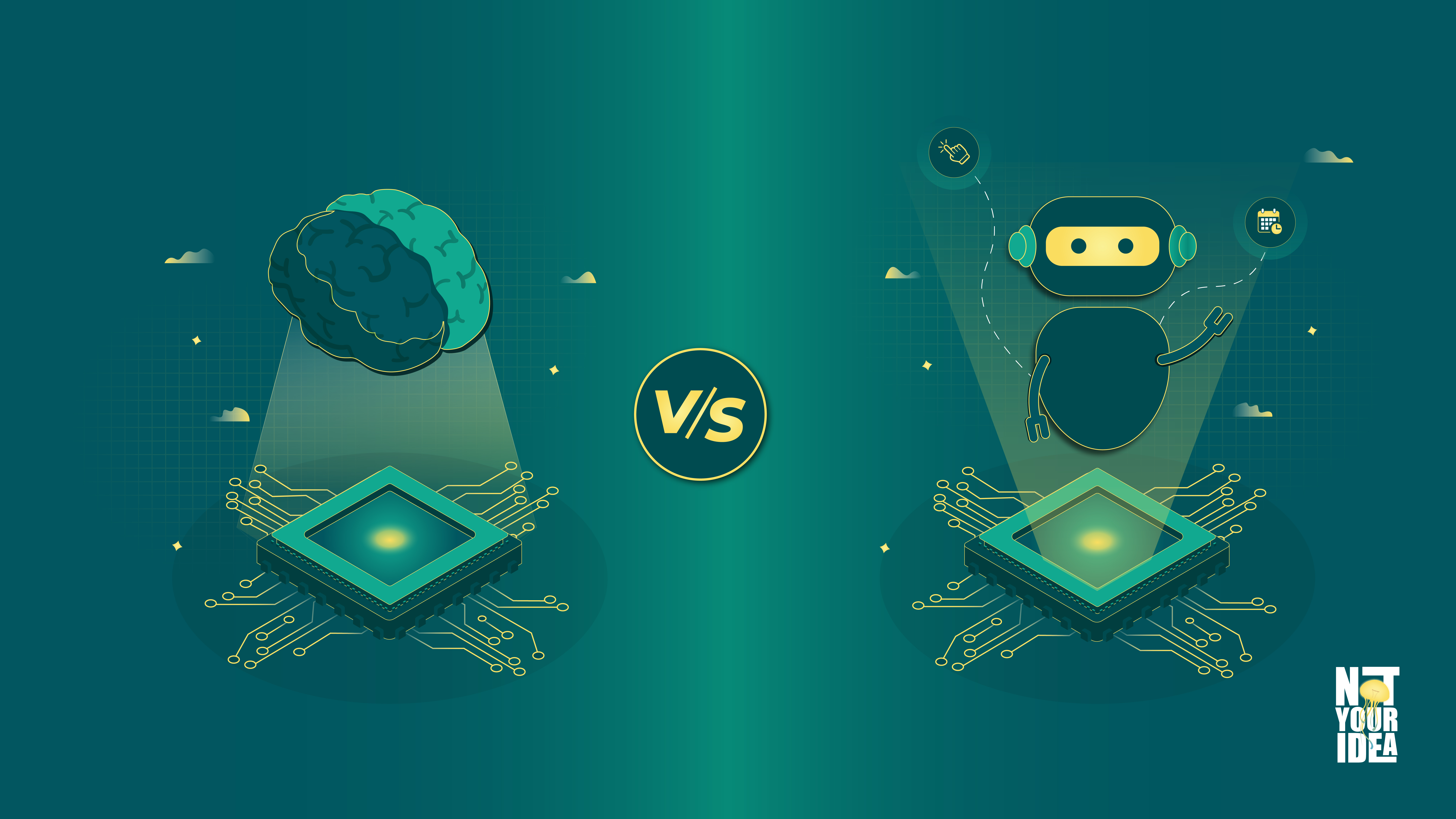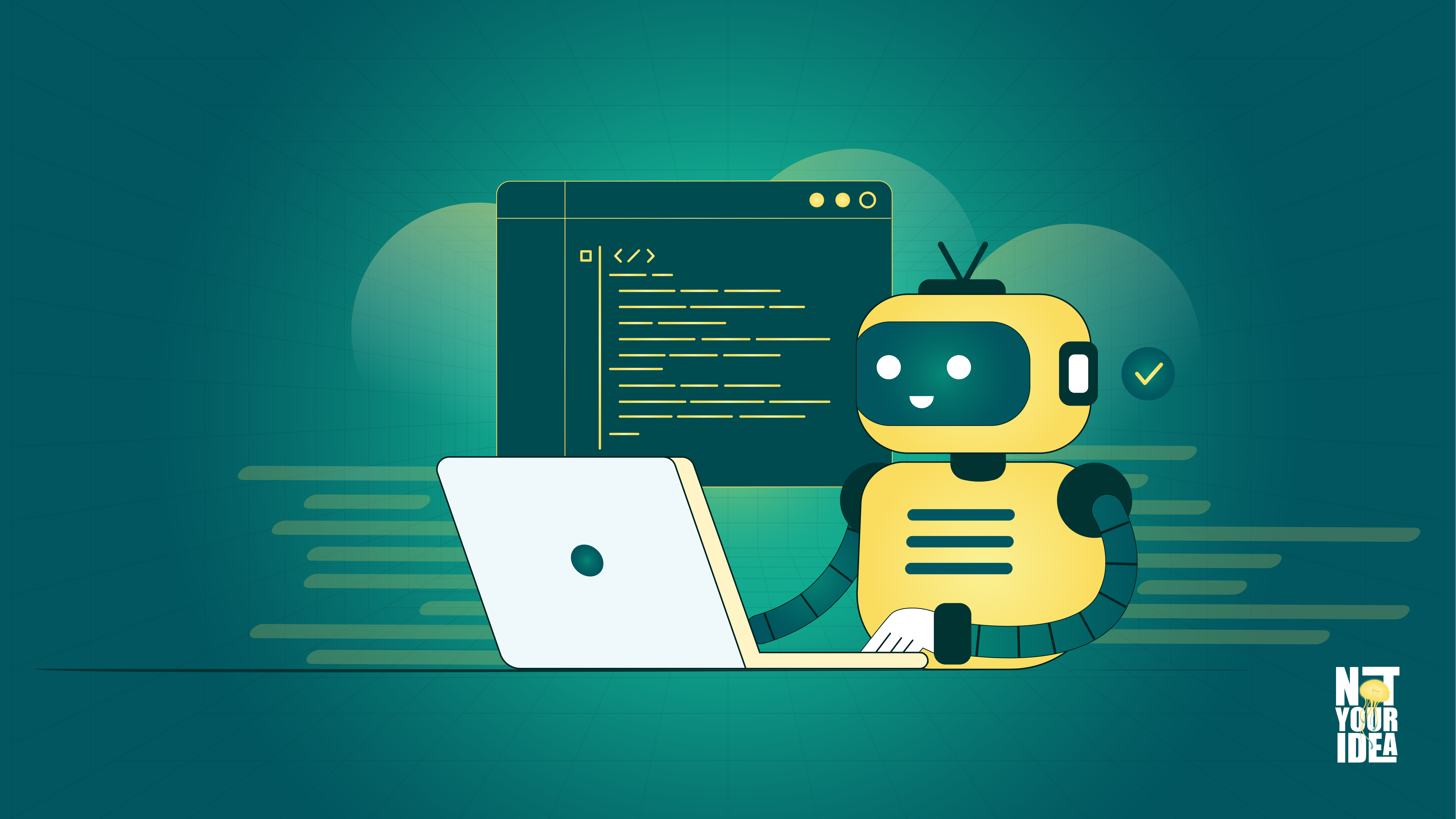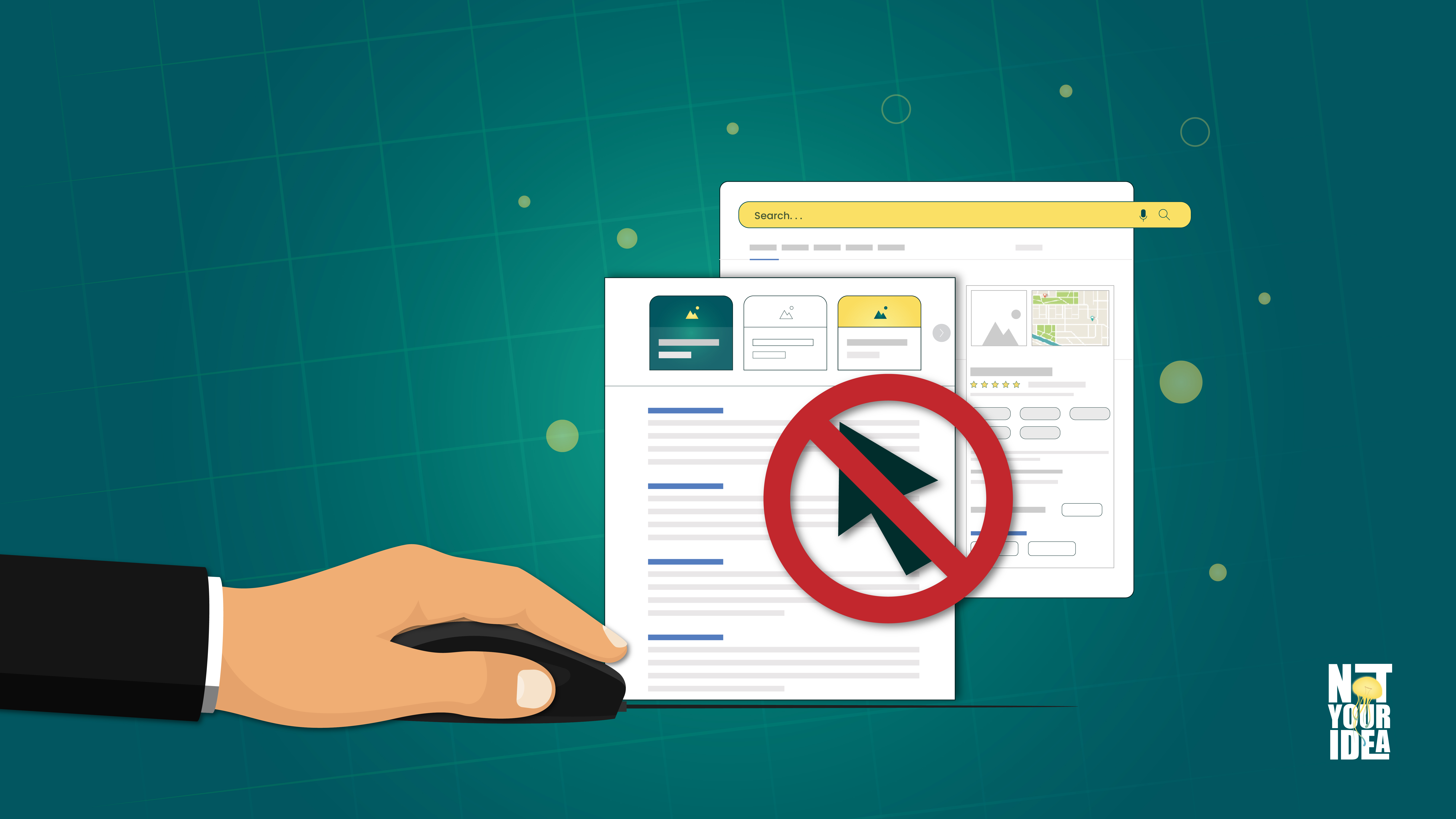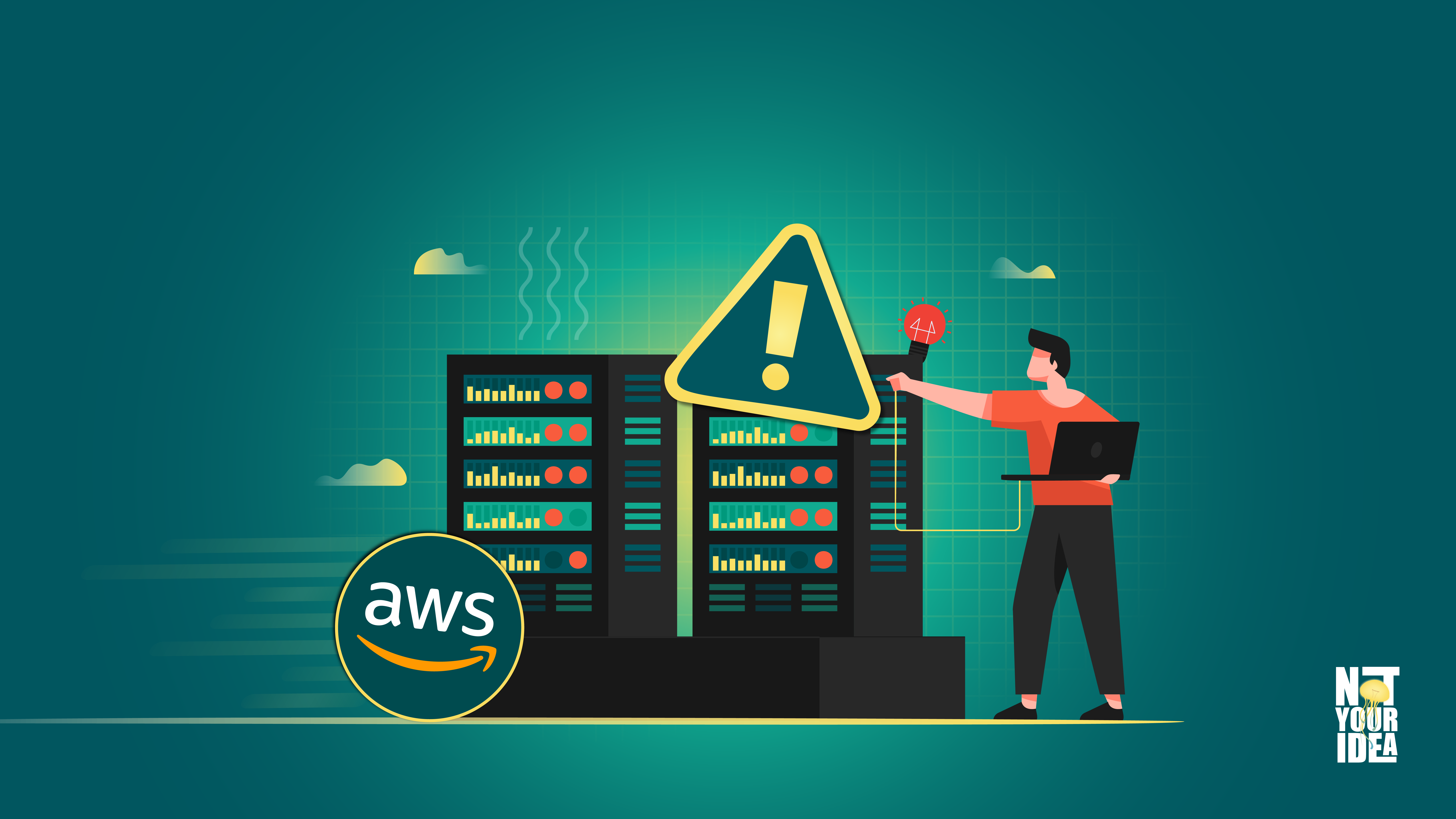AI is everywhere now - powering everything from your inbox to your bank’s fraud alerts. But as the world races ahead, it’s important not to get lost in the jargon. You’ll often hear terms like AI agents and agentic AI, which are sometimes used interchangeably. Yet, these are not the same thing.
Understanding the difference isn’t just intellectual; it’s the key to knowing how the next generation of automation can achieve complex business outcomes, not just complete tasks.
Let’s demystify what really separates AI agents from agentic AI—and why this matters for your organization.
AI Agents: The Task Specialists
Think of an AI agent as a skilled worker focused on a single job. Just like a virtual assistant that books a meeting or a recommendation engine that suggests products, an AI agent excels at a specific, predefined task.
They are designed to act reactively. They wait for you to ask a question or give a command, then respond with the best answer or action within their programmed limits. When they encounter a problem outside their scope, the result can be unpredictable.
AI agents are reliable and increasingly sophisticated, but at heart, they require your instructions, one step at a time.
Agentic AI: The Autonomous Overseer
Agentic AI represents a major leap forward. Instead of executing just one task, an agentic system operates with true autonomy to achieve a high-level goal. It functions like a project manager or an orchestra conductor – it doesn't just play one instrument; it guides the entire ensemble.
You set a goal (“Improve our customer retention rate” or “Resolve this user’s complex billing issue”), and the system gets to work.
The Anatomy of an Agentic System
This autonomy is powered by a few key components working in synergy:
- The Brain (Large Language Models - LLMs): This is the reasoning engine. The LLM interprets your goal, breaks it down into a logical sequence of steps, and formulates a plan.
- Memory (Short-Term and Long-Term): Unlike a simple chatbot that forgets you after the conversation ends, agentic AI has memory. Short-term memory holds the context of the current interaction, while long-term memory can store information about past conversations, user preferences, and business rules, enabling truly personalized and consistent experiences.
- Tools (APIs, Databases, and other Agents): Agentic systems are given access to a toolkit. This can include the ability to connect to internal databases via an API, search the web, access your CRM, or even command other, more specialized AI agents to perform sub-tasks.
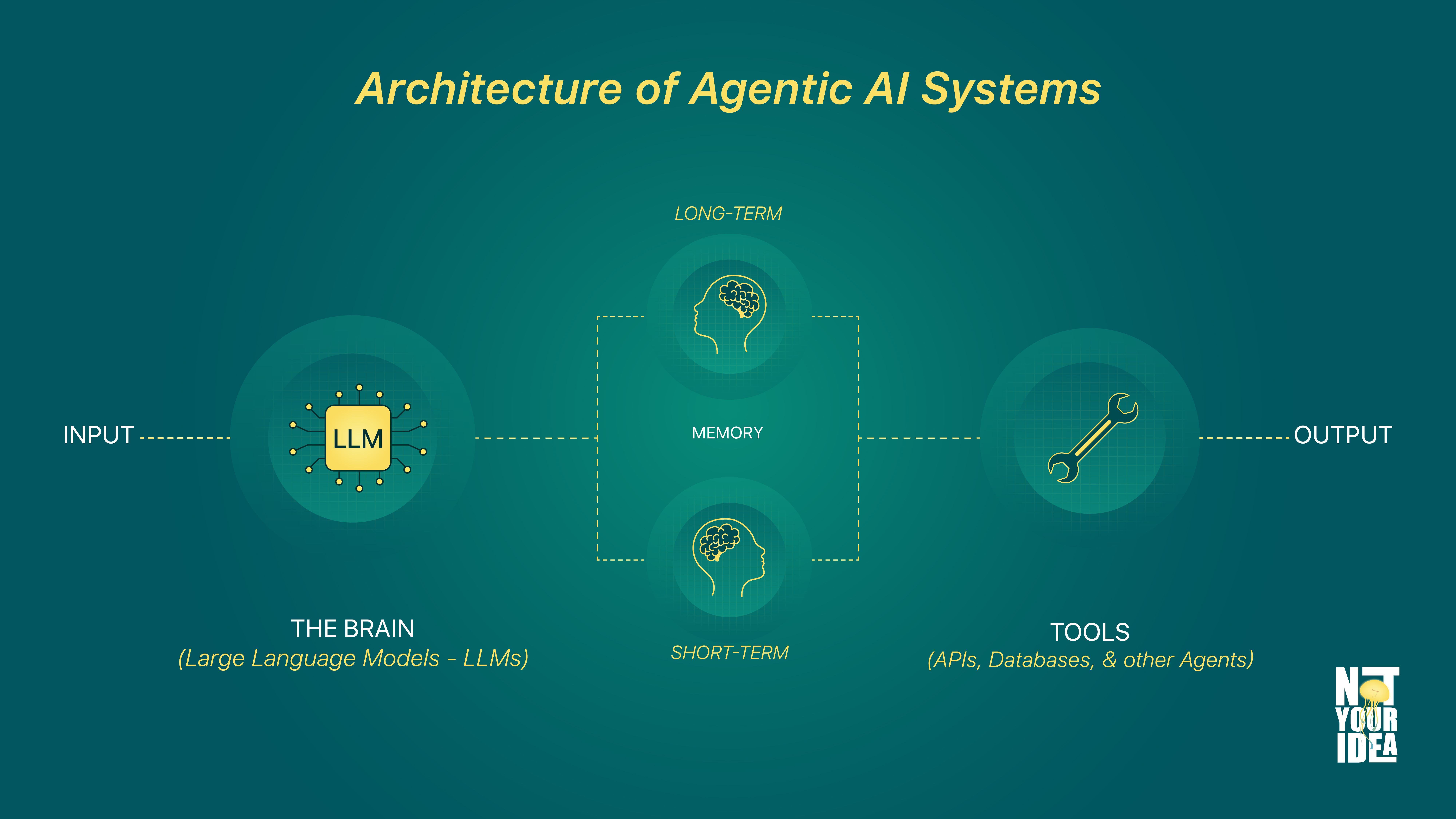
This combination allows agentic AI to not just respond, but to proactively identify, prioritize, and solve problems as they emerge.
Core Differences at a Glance
The fundamental difference lies in their approach and scope. An AI Agent is reactive and task-oriented. It waits for a direct command and then executes a single, well-defined job. In contrast, Agentic AI is proactive and goal-oriented. It autonomously orchestrates a complex workflow to achieve a broader objective, using its memory and tools to navigate ambiguity.
This extends to how they learn and collaborate. A typical AI Agent’s knowledge is static until a developer provides an update. Agentic AI, however, is designed to learn and adapt in real time, using the feedback from its own actions to refine its strategy. While an agent is usually a standalone tool, an agentic system acts as an integrator, capable of coordinating multiple tools and other agents to get the job done.
Put simply, an AI Agent is the tool you use for a job. An Agentic AI is the digital teammate that owns the entire project.
Why This Distinction Matters: From Tasks to Transformation
AI agents make everyday operations faster. But agentic AI is about strategic transformation—it’s the leap from automating tasks to automating outcomes. Businesses that embrace this are setting themselves up to delegate complex objectives, not just busywork, to digital helpers.
This translates into tangible business value, such as:
- Radically reducing Average Handle Time (AHT) in customer service by resolving issues end-to-end without human intervention.
- Increasing First Contact Resolution (FCR) because the system has the context and tools to solve problems on the first try.
- Driving proactive sales and marketing outreach at a scale and level of personalization that was previously impossible.
The Strategic Challenge: Governance and Security
This incredible power doesn't come without responsibility. Giving a system autonomous access to your CRM, financial software, and internal APIs is a powerful move that requires careful planning. Key challenges include:
- Security Risks: How do you safely grant API keys and permissions to an autonomous system?
- Alignment and Control: How do you ensure an agent’s actions always align with your company's values and business rules? This requires building robust governance frameworks with a clear human-in-the-loop for oversight on critical decisions.
Summing Up
Ultimately, the distinction between AI agents and agentic AI isn't just about technical definitions—it’s about a fundamental shift in our relationship with technology. We are moving from giving direct instructions to specialized tools to delegating complex outcomes to autonomous, digital teammates.
While new forms of AI offer tremendous opportunities, it is important to use them responsibly. When adopting them, there should be strict guidelines in place to prevent misuse or serious security and compliance lapses. Any AI system should always work for you and not against you.
Artificial intelligence is only going to become more advanced in the future and entrenched in our work. Agentic AI and AI agents are both gaining prominence. Understanding them will be essential for everyone to work with them effectively.
FAQs
What is the Main Difference Between Agentic AI and AI Agents?
AI agents do what you ask, one step at a time. Agentic AI manages the bigger picture—using its brain (LLM), memory, and tools to plan, adapt, and drive work towards a goal, even as circumstances change.
Are Most Chatbots Agentic AI?
No. Most current chatbots are agents. They can answer questions and perform routine actions, but they lack the long-term memory and autonomous, multi-tool capabilities of a truly agentic system.
How Does Agentic AI Impact Business Strategy?
By orchestrating and optimizing entire workflows with minimal oversight, agentic AI creates new levels of efficiency and agility, freeing up your human team to focus on high-level strategy, creativity, and relationship-building.
